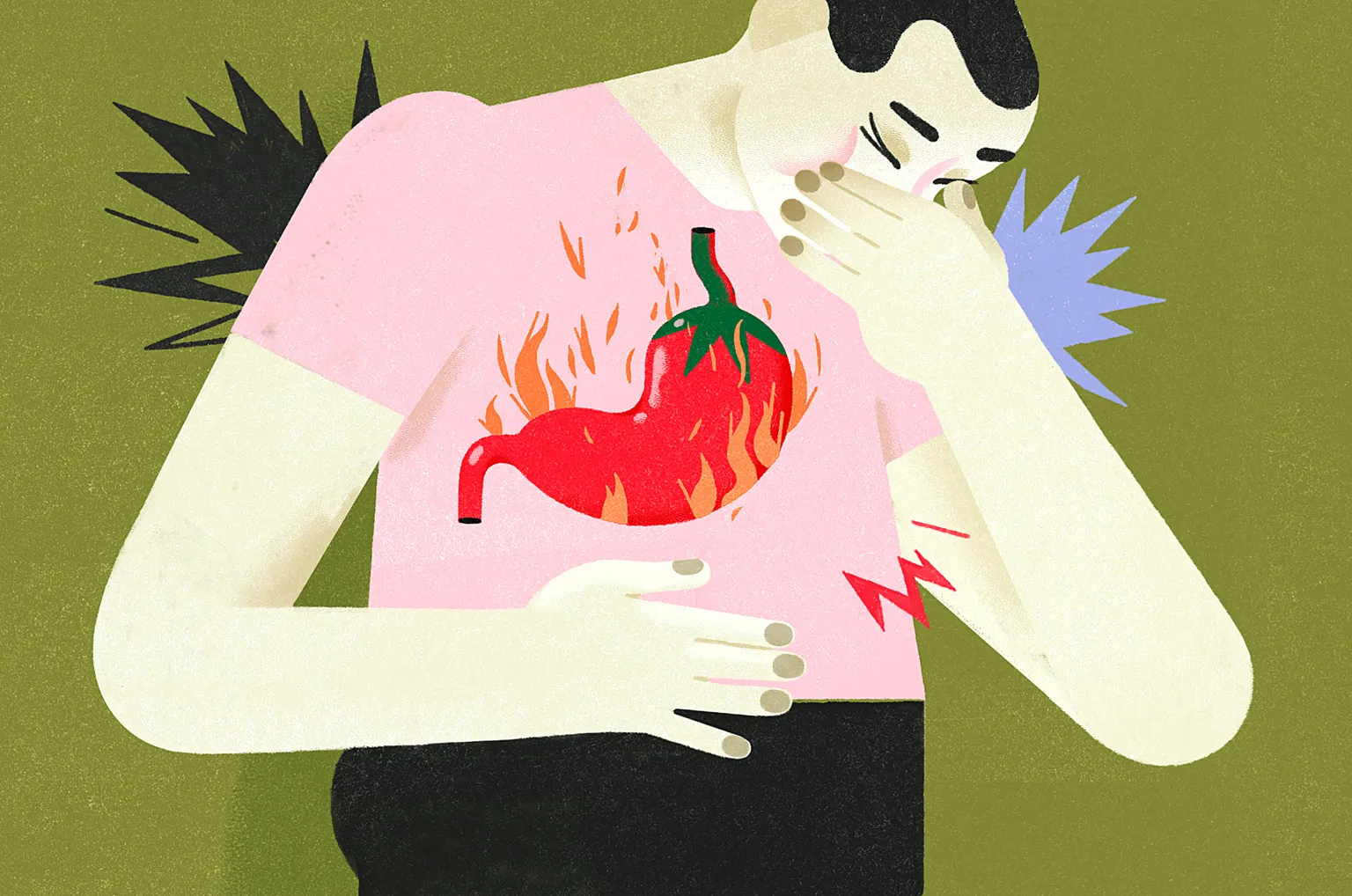The childhood admonition to refrain from swimming for an hour after eating, apparently to avoid cramps, is no longer enough for me. I now have to wait at least two hours before attempting any vigorous activity, or tasks involving bending over, to avoid the awful feeling of acid reflux, usually recognized by heartburn, its frequent symptom.
I have also found that one of my favorite breakfast foods (peanut butter) poses a particular problem, along with smoked fish, pickled herring, or freshly brewed coffee on an empty stomach.
How common is acid reflux?
Acid reflux is among the most common health complaints among American adults and may have become even more common in the wake of pandemic-related stress and weight gain. Late last year, pharmacies reported unprecedented shortages of antacids due to people suffering from “pandemic stomach,” leaving those with serious illnesses who needed the products without medication.
Even before the pandemic, a 2019 online survey of more than 71,000 adults found that nearly a third of them reported experiencing at least weekly the bothersome symptoms of acid reflux, in which a small amount of stomach contents reverses course and backs up into the esophagus.
What are the symptoms of acid reflux?
Common symptoms include a burning sensation in the chest, a feeling of lumping in the throat, belching and bloating, and regurgitation of very acidic and partially digested foods from the stomach into the mouth. Reflux can also affect the airways, causing hoarseness, wheezing, postnasal drip, coughing, or asthma.
However, persistent acid reflux is more than just a nuisance. If it occurs too often and persists for a long time, it can erode the lining of the esophagus and increase the risk of developing a deadly cancer called esophageal adenocarcinoma.
Five ways to reduce the risk of reflux
A Harvard University research team recently reported that many people could avoid this suffering by following an anti-reflux lifestyle. The researchers analyzed periodic health surveys conducted over 12 years among more than 40,000 nurses and identified five lifestyle traits that helped keep acid reflux at bay.
The more of these behaviors nurses did, the lower their risk of developing GERD, the well-known acronym for gastroesophageal reflux disease, the most persistent and potentially serious form of acid reflux. Doing all five actions reduced the overall risk of developing GERD symptoms by 37 percent.
Maintain a healthy body weight
A review of the medical literature led by Jesper Lagergren of the Karolinska Institute in Stockholm found that GERD affected about 22 percent of people classified as obese, compared with about 14 percent of those who were not. After eating, a muscular sphincter at the bottom of the esophagus opens to allow food to enter the stomach, then closes to prevent it from flowing back up. An overly large abdomen can put excessive pressure on this sphincter and prevent it from closing when it should, allowing acidic stomach contents to leak into the esophagus.
Don’t smoke.
Lagergren’s team found that smoking can prolong the time it takes for acidic foods to pass out of the esophagus. In an analysis of 30 studies, GERD affected about 20 percent of smokers, compared with 16 percent of nonsmokers.
Exercise.
Those who engaged in moderate to vigorous physical activity for at least 30 minutes a day were less likely to develop GERD symptoms, the Harvard team reported.
Reduce consumption of coffee, tea, and soft drinks.
The risk of GERD was reduced among those who consumed no more than two cups of coffee, tea, or soft drinks per day.
Eat a heart-healthy diet.
For example, those who followed a Mediterranean-style diet, with fruits and vegetables, legumes, fish, poultry, and whole grains, but little or no red meat and other sources of saturated fat, were less likely to develop acid reflux.
Genetics can also influence the risk of developing acid reflux, so people with a family history of the problem would be wise to avoid the risks outlined above. This will also help protect them from major life-threatening diseases, such as heart disease, diabetes, and many forms of cancer.
How to control symptoms
If you already have reflux, there are many things you can do to minimize symptoms and perhaps prevent them altogether. Instead of eating large meals, eat smaller portions more frequently. Minimize fatty foods and avoid fast food and fried foods altogether. A friend uses an air fryer to get crispy skin on chicken, but I prefer grilled chicken and avoid the skin. Choose lean meats (if you eat meat) and reduced-fat or fat-free dairy products, and avoid eating within three hours of bedtime. Also, try sleeping as if you were in a recliner, with the head of the bed higher than the foot of the bed.
The foods that irritate people with GERD the most are tomatoes and citrus fruits (such as oranges and grapefruit) and their juices, coffee (even decaffeinated for some people), alcoholic and carbonated beverages, spicy foods, garlic, chocolate, and mint. I have long since switched to low-acid orange juice, and I only drink a few milliliters a day to dissolve a fiber supplement. I have also found instant coffee to be less irritating than freshly brewed coffee, and I drink the latter only with food to help protect my digestive tract.
To counter an occasional, unexpected attack of heartburn, many people use a fast-acting antacid such as Tums (calcium carbonate) to help neutralize stomach acid. A more modern remedy, an H2 receptor blocker such as Pepcid (famotidine), can relieve symptoms in about 20 minutes by blocking the histamine receptors in the stomach that trigger acid production.
However, chronic reflux sufferers may find the most effective relief from medications called proton pump inhibitors, or PPIs, which disrupt acid production in the stomach. The best-known brands, sold over the counter and in higher doses, are Nexium (esomeprazole), Prevacid (lansoprazole) and Prilosec (omeprazole). These are among the top-selling medications in the United States.























+ There are no comments
Add yours